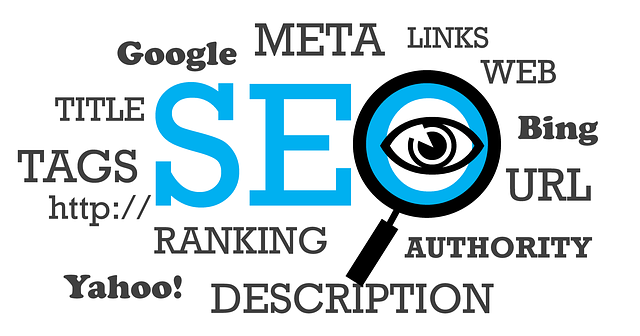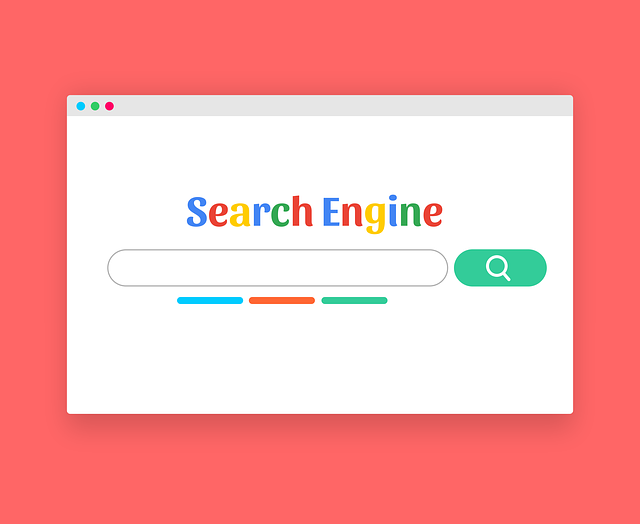In today's digital landscape, businesses must master SEO Tips for Ranking Higher to thrive. This involves a multi-faceted approach including keyword research, backlinking, and technical site improvements. By understanding user search behavior, optimizing content for relevant keywords, enhancing on-page elements, building quality backlinks, and focusing on Technical SEO, companies can significantly improve their search engine rankings. Continuous monitoring, adaptation to algorithm updates, and staying informed about industry trends are crucial for maintaining a strong online presence and keeping ahead of the competition in the ever-evolving world of SEO.
“Unleash your website’s potential with powerful SEO strategies—the key to ranking higher and attracting more traffic. This comprehensive guide navigates the essential aspects of search engine optimization, from understanding core principles to implementing technical optimizations. Discover the art of keyword research, on-page perfection, and building authority through off-page tactics. Stay ahead in the dynamic SEO landscape by continuously monitoring trends and adapting your approach. These expert tips will empower you to dominate search results and drive significant online success.”
Understanding Core Principles of SEO: A Solid Foundation for Success

In the competitive digital landscape, understanding the core principles of SEO is paramount for businesses aiming to rank higher and attract more organic traffic. SEO Tips for Ranking Higher aren’t just about optimizing content; they involve a holistic approach that includes keyword research, high-quality backlinking, and technical site optimization. By identifying and targeting relevant keywords, creating content that resonates with search intent, and ensuring your website is technically sound, you can significantly improve your search engine rankings.
A solid foundation for success in SEO lies in recognizing the evolving nature of search algorithms and staying abreast of industry trends. Regularly updating your SEO strategies to align with these changes ensures your website remains competitive. From improving site speed and mobile-friendliness to implementing structured data markup, every step contributes to a better user experience—a key factor that search engines consider when determining rankings.
Keyword Research: Unlocking the Power of Relevant Terms

Keyword research is a cornerstone of effective SEO strategies, and understanding the power of relevant terms can significantly boost your site’s ranking. It involves delving into tools and data to uncover the keywords and phrases that potential customers are using to search for products or services similar to yours. By identifying these keywords, you can optimize your content, ensuring it aligns with what your target audience is seeking. This strategic approach not only increases visibility in search engine results but also enhances user experience by delivering relevant, valuable content.
Focusing on long-tail keywords—more specific and less competitive phrases—can be a powerful SEO tip for ranking higher. These keywords often reflect the intent behind a user’s search more accurately, indicating a stronger match between the user’s query and your website’s content. Incorporating these terms naturally into your copy, meta tags, and headings can significantly improve your site’s performance in both organic search results and user engagement metrics.
Optimizing On-Page Elements: Enhancing Visibility with Quality Content and Meta Tags

Optimizing on-page elements is a fundamental aspect of SEO tips for ranking higher. Start with crafting quality content that not only informs but engages your audience. This means creating well-researched, relevant, and unique text that answers user queries. Incorporate keywords naturally, ensuring they align with what your target audience is searching for. Additionally, meta tags play a crucial role in enhancing visibility. Optimizing titles and descriptions allows search engines to better understand your content, improving the chances of it appearing in relevant searches.
Effective use of headings, image alt text, and internal links further strengthens on-page optimization. These elements work together to signal to search algorithms what your content is about, where it fits in your site, and how valuable it can be for users. By focusing on these SEO tips for ranking higher, you’re not just improving your website’s visibility; you’re also delivering a better user experience, which ultimately leads to increased engagement and conversions.
Building a Strong Off-Page Strategy: Leveraging Backlinks and Authority Signals

Building a robust off-page strategy is an integral part of any professional SEO approach aimed at ranking higher in search engine results. Off-page SEO focuses on activities outside your website to enhance its authority and visibility. One of the most powerful tools in your arsenal is backlinks, which act as votes of confidence from other websites. High-quality backlinks from reputable sources signal to search engines that your content is valuable and trustworthy, thereby improving your site’s credibility and ranking potential.
When implementing an off-page strategy, it’s crucial to differentiate between quality and quantity. It’s better to have a few links from authoritative sites relevant to your niche than numerous links from low-quality or irrelevant sources. This is where SEO tips for ranking higher come into play: identify industry influencers and reach out for collaborations; create content that naturally attracts backlinks; and engage in guest blogging on reputable platforms to showcase your expertise and earn valuable backlinks. By focusing on these strategies, you can build a strong off-page presence, boost your website’s authority signals, and set the stage for improved search engine rankings.
Technical SEO Considerations: Ensuring Your Website is Search Engine Friendly

When it comes to professional SEO strategies, Technical SEO Considerations play a crucial role in ensuring your website is search engine friendly. This involves optimizing key technical aspects that impact how search engines crawl and index your site. One of the most important SEO tips for ranking higher is implementing structured data markup, which helps search engines understand your content better and display it in rich snippets. Additionally, making sure your website has a clean XML sitemap and valid HTML code ensures efficient crawling and indexing, leading to improved visibility on search engine results pages (SERPs).
Other essential technical SEO considerations include improving page load speeds by optimizing images, minifying code, and leveraging browser caching. A fast-loading site enhances user experience and reduces bounce rates, which are both significant factors in determining your website’s ranking. Furthermore, ensuring mobile responsiveness is vital as search engines favor mobile-friendly websites. Regularly updating content, fixing broken links, and implementing a secure connection (HTTPS) also contribute to better Technical SEO, ultimately helping you achieve higher rankings.
Continuous Monitoring and Adaptation: Staying Ahead in the Evolving SEO Landscape

In the dynamic world of search engine optimization (SEO), staying ahead is a continuous journey. Continuous monitoring and adaptation are vital SEO tips for ranking higher, as algorithms evolve, trends change, and user preferences shift rapidly. Professionals must stay agile and responsive to these shifts; otherwise, they risk becoming obsolete quickly. Regular analysis of website performance, keyword rankings, and competitor strategies is essential to understanding the current landscape. By keeping a close eye on these factors, professionals can identify emerging opportunities and address potential issues promptly.
Adaptability involves not just adjusting tactics but also staying informed about industry news and best practices. SEO is not just about implementing strategies; it’s about learning from data and trends. Regular updates to content, metadata, and link structures might be necessary to align with algorithm changes. Those who embrace this continuous monitoring and adaptation will not only keep their websites relevant but also ensure they remain at the top of search engine results pages (SERPs).
